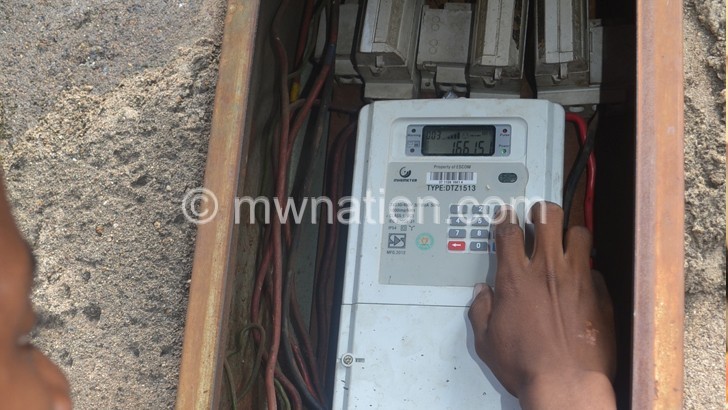Escom, Mera rebuff tariff suspension
The Malawi Energy Regulatory Authority (Mera) and Electricity Supply Corporation of Malawi (Escom) are yet to suspend electricity tariffs increase as the Parliamentary Committee on Natural Resources’ recommended three months ago, Nation on Sunday has established.
Having secured an approval from Mera in March this year, Escom effected a 10.62 percent tariffs adjustment, a development that led to the parliamentary committee summoning the two institutions for a hearing.

During the meeting at Parliament Building held in April, the committee told Escom and Mera to suspend the new prices on grounds that Malawians were passing through tough economic times due to the Covid-19 pandemic.
It also ordered the two parastatals to apologise to Malawians for subjecting them to high electricity tariffs. However, almost three months down the line, the suspension and apology have not been issued.
Meanwhile, Nation on Sunday has learnt that after the Parliamentary Committee issued the order, it has held separate meetings with Escom and Mera in Mangochi, where the two institutions refused to revert to old tariffs.
In an interview on Friday, the parliamentary committee’s chairperson Welani Chilenga confirmed Escom’s refusal, but insisted that their meeting with Mera did not focus on the electricity tariffs.
“We met Mera on fuel importation and not electricity tariffs. We are yet to get a response from Mera on the tariffs. Escom told us that they are not the ones who are responsible for approving tariffs. They were right. It is Mera which should be held accountable,” he said.
Chilenga’s position that the meeting with Mera did not discuss electricity tariffs was corroborated by the parastatal’s consumer and public relations manager Fitina Khonje who said that particular item was later removed from the agenda.
“We met in Mangochi to discuss two agenda items—Nocma premiums and electricity tariffs. They removed the electricity tariffs from the agenda, and we haven’t met ever since.”
Asked why they have not suspended the approval of the new tariffs, Khonje said: “We are still discussing with the committee on the way forward.”
Escom spokesperson Innocent Chitosi said in reference to the meeting with the parliamentary committee: “I can confirm that we appeared before the committee and discussed the issues that the committee had raised.”
Chilenga has since warned that his committee will push for the amendment of the Electricity Act, which gives powers to Mera and Escom to adjust prices based on Automatic Adjustment Formula, saying it infringes on economic rights of the end users.
“They are abusing this arrangement. As a committee we are also looking at removing this clause because it gives powers to Escom to follow what they call ‘Automatic Tariff Adjustment’. We don’t want adjustments which follow economic trends because they come when Malawians are also feeling the effects of economic shocks.
“People are being punished by a law that was approved by the people they elected to represent them. If we remove the clause they (Escom and Mera) will have to do consultative meetings and only adjust according to what they have agreed with their customers,” he said.
Section 18 of the Electricity Act, partly reads: “The schedule of tariffs approved by the Authority under subsection (1) shall comprise a tariff adjustment formula which takes into consideration exchange rate movement, consumer price index increases and other unavoidable cost increases and expected efficiency gains in the sector.”
Effective March 30 2021, consumers have been paying K10 more for every kilowatt per hour (Kwh) of electricity following the hike in electricity tariffs.
Mera attributed the upward adjustment to developments in the economy, including the depreciation of the kwacha.
The increase by 10.62 percent means that consumers will now be paying K104.46 per Kwh from K94.43/Kwh.
Mera last adjusted upwards electricity tariffs in 2018 when it approved a base tariff by 31.8 percent which was planned to be implemented in phases from 2018 to 2022. n





